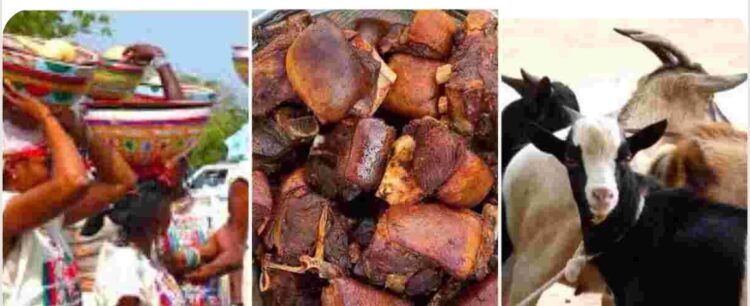Why we don’t eat goat meat” – Fulani
For generations, many Fulanis across northern Nigeria have refrained from eating goat meat.
This long-standing practice is reportedly rooted in cultural beliefs, historical traditions, and perceived health concerns.
Despite the widespread consumption of goat meat in Nigeria, Fulani communities in states such as Sokoto, Kano, Jigawa, Bauchi, and Gombe continue to avoid it, passing down the belief from one generation to another.
The reasons behind this avoidance vary. Some Fulani elders claim the tradition dates back to the time of Usmanu Danfodiyo, the revered Islamic scholar and leader of the 19th-century Sokoto Caliphate.
According to oral accounts, Danfodiyo and his followers refrained from eating goat meat, a practice that many of their descendants have continued.
Others argue that the Fulani perceive goats as unclean animals, often associating them with scavenging habits.
Unlike cows and sheep—animals that Fulani herders traditionally rear—goats are seen as indiscriminate feeders, making them less desirable as food.
A resident of Kano, Malam Abdullahi, explained;
“Our elders warned us that goat meat can cause diseases like leprosy and asthma. We grew up with this belief, and I cannot bring myself to eat it.”
Similarly, Musa Muhammad, another resident, stated, “Goats eat anything, including dirty things. That is why many Fulani believe their meat is not good for consumption.”
Some Fulani believe that consuming goat meat can cause certain ailments, leading to widespread avoidance of the meat.
However, medical experts have debunked these claims, stating that goat meat is a nutritious source of protein, rich in essential vitamins and minerals.
Despite this, the belief remains strong among many Fulani communities.
A butcher in Bauchi, Umar Garba, remarked, “Even if you serve it unknowingly, a Fulani person will recognize it by its taste and refuse to eat it.”
While some younger Fulanis are beginning to question this tradition, many still uphold it out of respect for their elders and cultural heritage.



